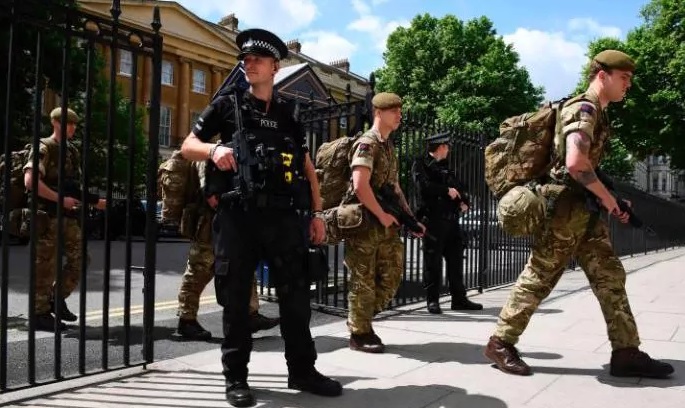Headlines:
- Terrorist Attack in the UK
- Rouhani Secures Second Term
- Instability in Tunisia
Terrorist Attack in the UK
Twenty-two people, including children, have been killed and 59 injured in a blast at Manchester Arena. The attack took place on Monday night at 10:30pm at the end of a concert by the US singer Ariana Grande. Local police said the lone male attacker, who died in the blast, was carrying an improvised explosive device which he detonated. Sixty ambulances attended the incident. Chief Constable Ian Hopkins said it was “the most horrific incident” Greater Manchester had ever faced. He said the “fast-moving investigation” was now working to establish whether the attacker “was acting alone or as part of a network”. It has also been deemed to be a terror attack unless “proven otherwise”, a growing trend amongst western nations. A motive has yet to be defined but an assumption has been made, as a result public opinion of the incident will be shaped by the media who have already declared it a suicide terror attack. Campaigning for the general election has also been suspended at a stage where the Tories are coming under increased public pressure due to the suggestion on a tax on care of people suffering from dementia.
Rouhani Secures Second Term
Iranian President Hassan Rouhani has won another term in office by a landslide. On May 20, Iran’s Ministry of Interior announced that the incumbent won 57% of the vote in the presidential election, soundly defeating cleric Ebrahim Raisi, who won just 38.5% of the public vote. In a race that drew over 70% of the electorate, Rouhani scored a victory bigger than the one that initially brought him into office in 2013. Economic reform and Iran’s reintegration with the global economy was his campaign and Rouhani will now build on the successes of his first term, in which he stabilized the economy and negotiated with the West to lift sanctions on Iranian oil exports. He prepared to liberalize parts of the energy sector to attract foreign firms. Rouhani has spoken for decades about his country’s need to open negotiations with the US. During his first term, he kept his focus on working toward a deal with the West on Iran’s nuclear program. And in the final stretch of his campaign, he vowed to work with Washington to get the remaining sanctions on Iran lifted.
Instability in Tunisia
Tunisian officials warned that tensions in the country’s south could escalate following a protester’s death after clashes with security forces at an oil and gas plant. The young demonstrator died of wounds suffered on Monday 22 May when he was “accidentally” run over by a national guard vehicle outside the El Kamour pumping station, the health and interior ministries said. Protesters have been camping outside the El Kamour installation for around a month, blocking trucks from entering, to demand a share of resources and jobs in the sector. National guard spokesman Khalifa Chibani warned of a further escalation. “There is incitement on social media… calls for civil disobedience… and even a coup d’etat.” Six years since the 2011 uprising that toppled Zine El Abidine Ben Ali and the subsequent failure of Ennadah has seen Tunisia’s neglected periphery rocked by protests over social and labour issues. Daily newspaper La Presse warned that “the anger of the protesters (could) multiply like a snowball.” It said the government must tackle the issue, which “makes Tunisians feel that nothing has changed since January 14, 2011” – the day Ben Ali fled the country he had dominated for more than two decades. “Otherwise, the worst is to be feared.”

